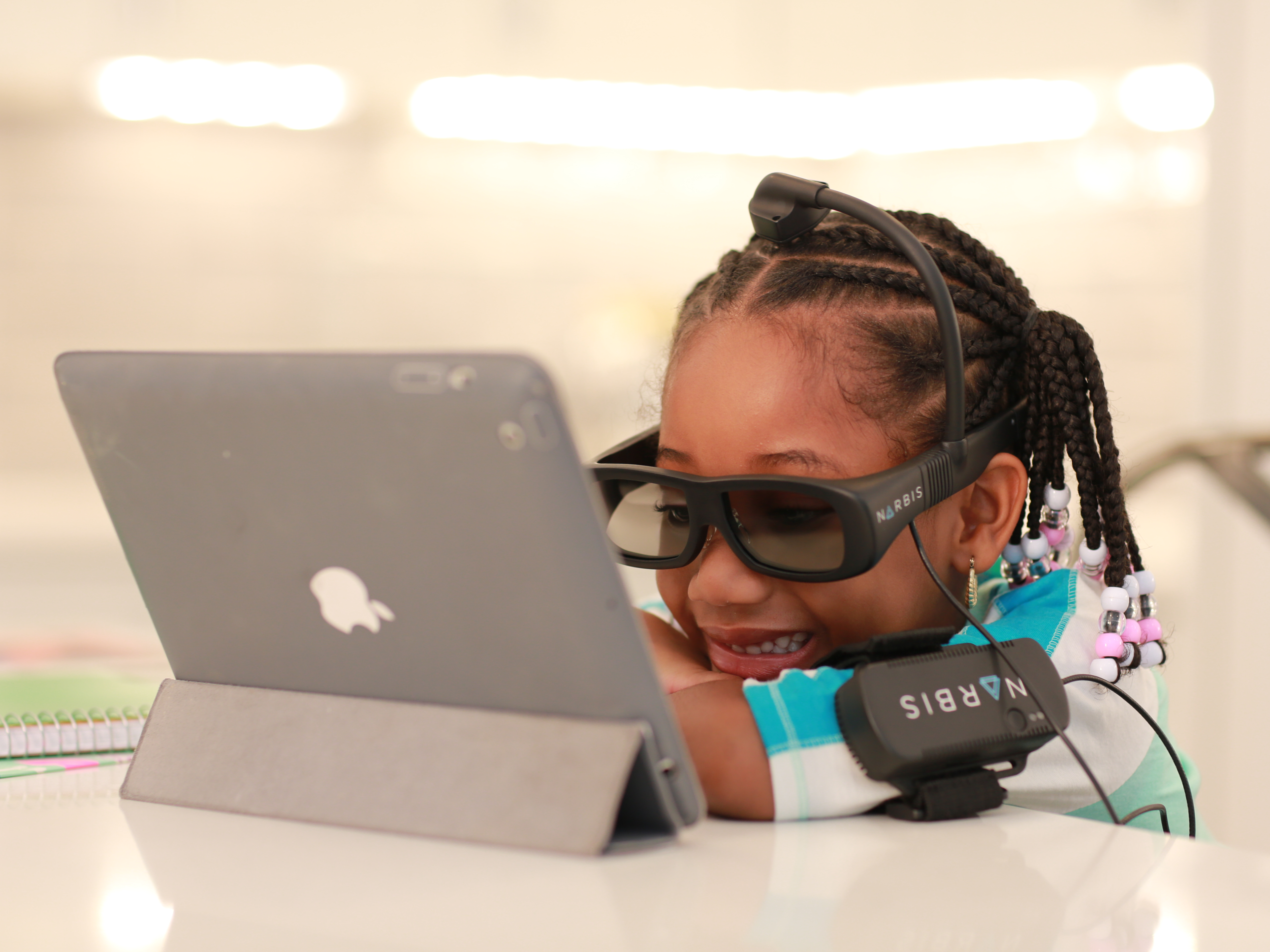- A wellness tech company called Narbis has released smart glasses for children that are meant to help them concentrate.
- The glasses have three sensors that can track the wearer’s brain waves and detect when they’re distracted. The lenses will then darken until the wearer returns to the task at hand.
- The glasses will cost $690 and be available in December.
- Visit Business Insider’s homepage for more stories.
A Pennsylvania-based wellness technology company called Narbis announced a new pair of smart glasses this week that are meant to change the way kids focus.
The glasses are designed to encourage the wearer to concentrate – Narbis envisions them being used in a situation like homework. According to the company, the glasses provide nuerofeedback, penalizing or rewarding the user based on their brain patterns, which is known as operant conditioning.
For example, the glasses will go dark when the person is distracted, and clear up when the wearer is concentrating. In other words, they can physically prevent the wearer from seeing distractions.
The glasses are available for a discounted preorder price of $590, or for $690 once they become available in early December.
Some analysts have already suggested that wearables might be the future of health tech, as fitness trackers and watches become more common. Other companies are also expanding their wearables to children, like wearable thermometers for babies and trackers for older children. Some research even suggests that wearables can relieve stress and reduce disruptive or self-harming behavior in children with autism and developmental delays. Perhaps smart glasses and other wearables are the future of learning among school-aged children as well.
Here's a close look at how Narbis' smart glasses will work.
Neurofeedback is a technique that relies on electrical brain wave sensors. The three sensors on the Narbis glasses go behind each ear and on top of the head.

The glasses also come with an app, which the company says uses a NASA-designed algorithm to track brain waves and identify relaxation, concentration, or distraction.

"In an increasingly connected world where we have distractions all around us, Narbis can help people practice ignoring distractions and maintaining concentration while completing tasks," CEO and founder Devon Greco said in the announcement about the glasses.

Narbis positions its glasses, which also come with a tablet, as a weekly training exercise for your brain. It recommends wearing them two or three times a week for half-hour intervals.

The glasses could "discourage distractibility and reward concentration while reading, working on the computer, studying, or doing homework." Essentially, they would give parents a way to see if their child is daydreaming while they work.

The accompanying app tracks progress, so parents can see if the wearable is actually helping their child improve concentration.

The glasses are available for $590 if you preorder them, or for $690 once they become available in early December.

